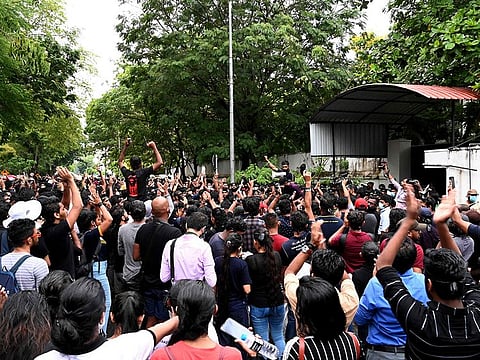Sri Lanka requires urgent economic stability
Island nation needs a fresh road map and assistance from international community

Sri Lanka is in dire straits. The beautiful South Asian island nation is reeling from high inflation, a lack of services and utilities, poor health care and wider economic paralysis.
While images of long queues in front of petrol stations, steep rise in prices of essential commodities and frequent blackouts have become commonplace, the ongoing pandemic has further exacerbated the suffering of ordinary Lankans.
But more than the disruption brought about by Covid-19, the crisis has its genesis in the fundamentals of Sri Lankan economy — and the massive debt crisis at hand. The country is — for the first time in decades — likely to default on its foreign debt in what may well be the nation’s worst economic crisis in over 70 years.
Amid the looming crisis, Sri Lanka’s central bank has announced that the country may temporarily suspend payments, so that its limited foreign reserves could be spent on essential imports. Consequently public opinion has soured as people face soaring prices, stalled growth, currency collapse and a host of other issues — some of which are the government’s own making.
Nationwide anger
With power cuts extended for up to 10 hours a day, there have been several nonviolent civilian protests throughout the length and breadth of Sri Lanka, conveying a massive, nationwide anger simmering over the weeks and months.
On its part, the Sri Lankan government offered to talk to protesters, but the situation continues to be grim and is unlikely to improve in the short-term. Next week, the country is likely to start talks with the IMF to ease the economic situation.
Sri Lanka’s economic problems are massive, and unless concrete steps are taken to address this crisis, the country’s economy can go in a tailspin.
The Lankan government needs to act fast to try and restore confidence and stability. There is hope that with pragmatic policies, Colombo will be able to tide over the crisis and restore order and some semblance of economic stability.
It is paramount that the people are taken into confidence and a fresh road map is unveiled — one that works towards restoring economic stability.
With the active assistance of international community, everything possible must be done to help the island nation emerge from the crisis.



